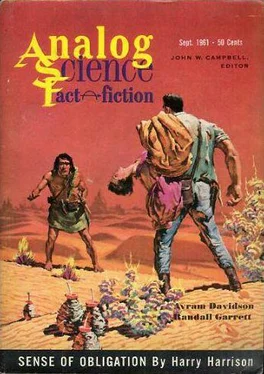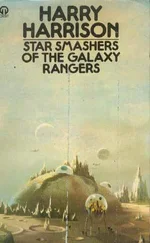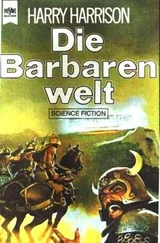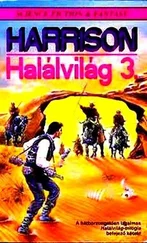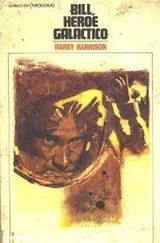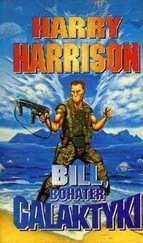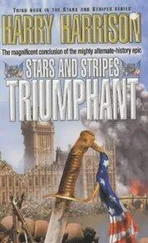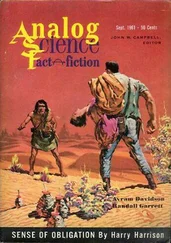Harry Harrison - Sense of Obligation
Здесь есть возможность читать онлайн «Harry Harrison - Sense of Obligation» весь текст электронной книги совершенно бесплатно (целиком полную версию без сокращений). В некоторых случаях можно слушать аудио, скачать через торрент в формате fb2 и присутствует краткое содержание. Жанр: Фантастика и фэнтези, на английском языке. Описание произведения, (предисловие) а так же отзывы посетителей доступны на портале библиотеки ЛибКат.
- Название:Sense of Obligation
- Автор:
- Жанр:
- Год:неизвестен
- ISBN:нет данных
- Рейтинг книги:4 / 5. Голосов: 1
-
Избранное:Добавить в избранное
- Отзывы:
-
Ваша оценка:
- 80
- 1
- 2
- 3
- 4
- 5
Sense of Obligation: краткое содержание, описание и аннотация
Предлагаем к чтению аннотацию, описание, краткое содержание или предисловие (зависит от того, что написал сам автор книги «Sense of Obligation»). Если вы не нашли необходимую информацию о книге — напишите в комментариях, мы постараемся отыскать её.
Sense of Obligation — читать онлайн бесплатно полную книгу (весь текст) целиком
Ниже представлен текст книги, разбитый по страницам. Система сохранения места последней прочитанной страницы, позволяет с удобством читать онлайн бесплатно книгу «Sense of Obligation», без необходимости каждый раз заново искать на чём Вы остановились. Поставьте закладку, и сможете в любой момент перейти на страницу, на которой закончили чтение.
Интервал:
Закладка:
III
This time there was no way to hold the door. Ihjel didn't try. He stepped aside and two men stumbled into the room. He walked out behind their backs without saying a word.
"What happened? What did he do?" the doctor asked, rushing in through the ruined door. He swept a glance over the continuous recording dials at the foot of Brion's bed. Respiration, temperature, heart, blood pressure—all were normal. The patient lay quietly and didn't answer him.
For the rest of that day, Brion had much to think about. It was difficult. The fatigue, mixed with the tranquilizers and other drugs had softened his contact with reality. His thoughts kept echoing back and forth in his mind, unable to escape. What had Ihjel meant? What was that nonsense about Anvhar? Anvhar was that way because ... well it just was. It had come about naturally. Or had it? The planet had a very simple history.
From the very beginning there had never been anything of real commercial interest on Anvhar. Well off the interstellar trade routes, there were no minerals worth digging and transporting the immense distances to the nearest inhabited worlds. Hunting the winter beasts for their pelts was a profitable but very minor enterprise, never sufficient for mass markets. Therefore no organized attempt had ever been made to colonize the planet. In the end it had been settled completely by chance. A number of offplanet scientific groups had established observation and research stations, finding unlimited data to observe and record during Anvhar's unusual yearly cycle. The long-duration observations encouraged the scientific workers to bring their families and, slowly but steadily, small settlements grew up. Many of the fur hunters settled there as well, adding to the small population. This had been the beginning.
Few records existed of those early days, and the first six centuries of Anvharian history were more speculation than fact. The Breakdown occurred about that time and in the galaxy-wide disruption, Anvhar had to fight its own internal battle. When the Earth Empire collapsed it was the end of more than an era. Many of the observation stations found themselves representing institutions that no longer existed. The professional hunters no longer had markets for their furs, since Anvhar possessed no interstellar ships of its own. There had been no real physical hardship involved in the Breakdown, as it affected Anvhar, since the planet was completely self sufficient. Once they had made the mental adjustment to the fact that they were now a sovereign world, not a collection of casual visitors with various loyalties, life continued unchanged. Not easy—living on Anvhar is never easy—but at least without difference on the surface.
The thoughts and attitudes of the people were however going through a great transformation. Many attempts were made to develop some form of stable society and social relationship. Again little record exists of these early trials, other than the fact of their culmination in the Twenties.
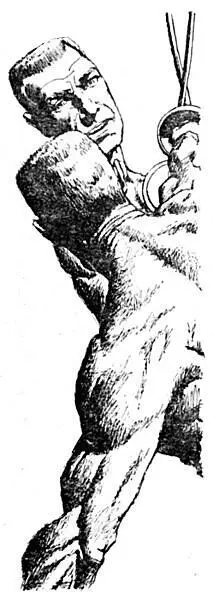
To understand the Twenties, you have to understand the unusual orbit that Anvhar tracks around its sun, 70 Ophiuchi. There are other planets in this system, all of them more or less conforming to the plane of the ecliptic. Anvhar is obviously a rogue, perhaps a captured planet of another sun. For the greatest part of its 780-day year it arcs far out from its primary, in a high-angled sweeping cometary orbit. When it returns there is a brief, hot summer of approximately eighty days before the long winter sets in once more. This severe difference in seasonal change has caused profound adaptations in the native life forms. During the winter most of the animals hibernate, the vegetable life lying dormant as spores or seeds. Some of the warm-blooded herbivores stay active in the snow-covered tropics, preyed upon by fur-insulated carnivores. Though unbelievably cold, the winter is a season of peace in comparison to the summer.
This is a time of mad growth. Plants burst into life with a strength that cracks rocks, growing fast enough for the motion to be seen. The snow fields melt into mud and within days a jungle stretches high into the air. Everything grows, swells, proliferates. Plants climb on top of plants, fighting for the life-energy of the sun. Everything is eat and be eaten, grow and thrive in the short season. Because when the first snow of winter falls again, ninety per cent of the year must pass until the next coming of warmth.
Mankind has had to adapt to the Anvharian cycle in order to stay alive. Food must be gathered and stored, enough to last out the long winter. Generation after generation had adapted until they look on the mad seasonal imbalance as something quite ordinary. The first thaw of almost-nonexistent spring triggers a wide reaching metabolic change in the humans. Layers of subcutaneous fat vanish and half-dormant sweat glands come to life. Other changes are more subtle than the temperature adjustment, but equally important. The sleep center of the brain is depressed. Short naps or a night's rest every third or fourth day become enough. Life takes on a hectic and hysterical quality that is perfectly suited to the environment. By the time of the first frost, rapid growing crops have been raised and harvested, sides of meat either preserved or frozen in mammoth lockers. With his supreme talent of adaptability mankind has become part of the ecology and guaranteed his own survival during the long winter.
Physical survival has been guaranteed. But what about mental survival? Primitive Earth Eskimos can fall into a long doze of half-conscious hibernation. Civilized men might be able to do this, but only for the few cold months of terrestrial mid-winter. It would be impossible to do during a winter that is longer than an Earth year. With all the physical needs taken care of, boredom became the enemy of any Anvharian who was not a hunter. And even the hunters could not stay out on solitary trek all winter. Drink was one answer and violence another. Alcoholism and murder were the twin terrors of the cold season, after the Breakdown.
It was the Twenties that ended all that. When they became a part of normal life the summer was considered just an interlude between games. The Twenties were more than just a contest—they became a way of life that satisfied all the physical, competitive and intellectual needs of this unusual planet. They were a decathlon—rather a doubled decathlon—raised to its highest power, where contests in chess and poetry composition held equal place with those in ski-jumping and archery. Each year there were two planet-wide contests held, one for men and one for women. This was not an attempt at sexual discrimination, but a logical facing of facts. Inherent differences prevented fair contests—for example, it is impossible for a woman to win a large chess tournament—and this fact was recognized. Anyone could enter for any number of years, there were no scoring handicaps.
When the best man won he was really the best man. A complicated series of playoffs and eliminations kept contestants and observers busy for half the winter. They were only preliminary to the final encounter that lasted a month, and picked a single winner. That was the title he was awarded. Winner. The man—and woman—who had bested every other contestant on the entire planet and who would remain unchallenged until the following year.
Winner. It was a title to take pride in. Brion stirred weakly on his bed and managed to turn so he could look out of the window. Winner of Anvhar. His name was already slated for the history books, one of the handful of planetary heroes. School children would be studying him now, just as he had read of the Winners of the past. Weaving daydreams and imaginary adventures around Brion's victories, hoping and fighting so some day equal them. To be a Winner was the greatest honor in the universe.
Читать дальшеИнтервал:
Закладка:
Похожие книги на «Sense of Obligation»
Представляем Вашему вниманию похожие книги на «Sense of Obligation» списком для выбора. Мы отобрали схожую по названию и смыслу литературу в надежде предоставить читателям больше вариантов отыскать новые, интересные, ещё непрочитанные произведения.
Обсуждение, отзывы о книге «Sense of Obligation» и просто собственные мнения читателей. Оставьте ваши комментарии, напишите, что Вы думаете о произведении, его смысле или главных героях. Укажите что конкретно понравилось, а что нет, и почему Вы так считаете.
